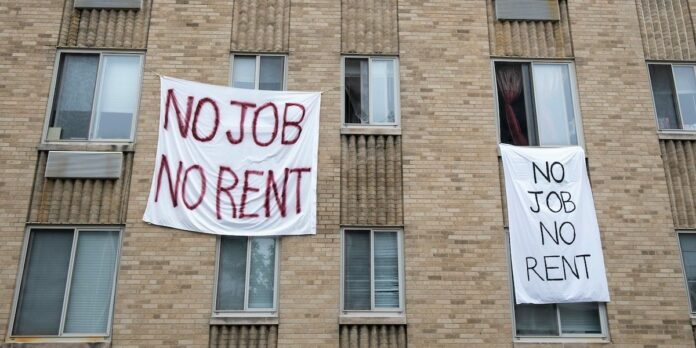- Lawmakers are getting closer to sending more cash payments to American families, but a second stimulus check hasn’t been approved yet.
- Democrats sent a bill to the Senate that would expand eligibility for stimulus checks outlined in the last emergency relief package, but GOP lawmakers appear split on the issue.
- Meanwhile, top economists are arguing for recurring stimulus checks.
- A consensus still needs to be reached on several details, including eligibility, timing, and the amount of the payment.
- TaxAct is offering 35% off on federal and state returns.
Support seems to be ramping up among lawmakers for a second stimulus check as the pandemic rages on in the US.
The IRS distributed nearly 160 million stimulus checks to Americans by early June, two months after the onetime cash payments were authorized in the emergency CARES Act. Individuals received up to $1,200 and joint filers received up to $3,400, plus an additional $500 for each dependent 16 or younger.
Some Americans are still waiting on their first payments — nonfilers have until October 15 to register for theirs — but lawmakers on both sides of the aisle have expressed an interest in sending more cash to Americans.
Is there a 2nd stimulus check being issued?
No, a second stimulus check isn’t being issued — yet.
Though House Democrats passed a bill in May proposing another round of direct payments to households that would greatly expand the eligibility requirement outlined in the CARES Act, it isn’t under consideration in the GOP-controlled Senate.
Business Insider’s Joseph Zeballos-Roig reported in June that Republican lawmakers were extremely split on whether to send more money to Americans.
On Monday, Senate Majority Leader Mitch McConnell said a second stimulus check “could well be” a part of the next economic relief package, Zeballos-Roig reported. McConnell suggested shrinking the pool of qualifying recipients to low-income households.
“I think the people who have been hit the hardest are people who make about $40,000 a year or less,” McConnell said. “Many of them work in the hospitality industry.”
Mark Meadows, the White House chief of staff, said in a separate interview that the door was open for a second round of stimulus checks as long as President Donald Trump supported them.
Key details around a 2nd stimulus check aren’t clear
Among the several proposals and verbal support put forth by lawmakers and Trump advisers for a second stimulus check, there hasn’t been a clear consensus on when payments should be sent, how much they’d be, and who would be eligible.
The first round of stimulus checks were based on income from 2019 or 2018, whichever tax return was filed most recently. Single filers with an adjusted gross income of less than $99,000 and joint filers with an AGI of less than $198,000 qualified for payments. The amounts were reduced for incomes north of $75,000 and $150,000, respectively.
Unfortunately these thresholds based on previous income may have left out some workers who lost their jobs or took pay cuts during the pandemic and subsequently fell under the qualifying income thresholds. However, because the payments are technically a tax credit against 2020 income, people will be able to claim the money on their tax return next year.
The IRS sent most stimulus payments by direct deposit or paper check and later introduced prepaid Visa debit cards, which were sent to about 4 million people. Direct deposit is the fastest method of delivery, but debit cards make the money more widely available, primarily to households without a bank account.
Top economists are calling for recurring stimulus checks
In an open letter published by the Economic Security Project and the Justice Collaborative on Tuesday, 156 top economists urged lawmakers to approve ongoing stimulus payments to households that are linked to economic conditions.
The economists said more direct cash payments would be a win-win for households and the government, supplying people with enough cash to buy groceries and pay bills and, in turn, buttress businesses and the economy at large.
“Even after businesses start to re-open and jobs begin to come back, there will be significant economic fallout, and demand will continue to lag if people don’t have money to spend,” the letter said. “Regular direct stimulus payments tied to economic indicators will help families stay afloat and drive economic activity.”






